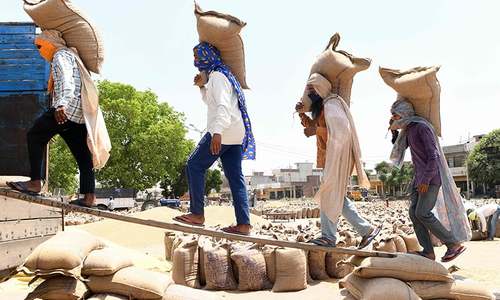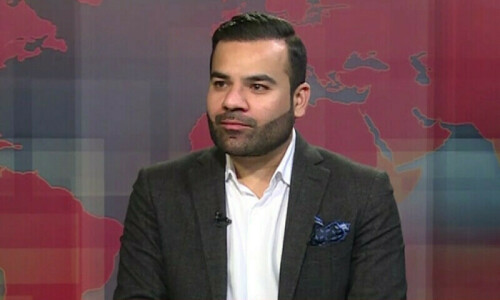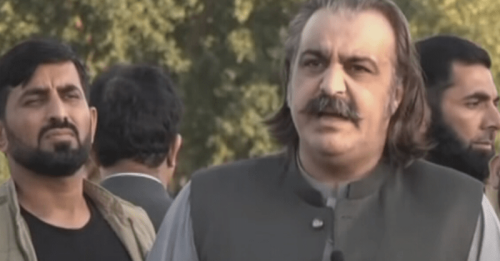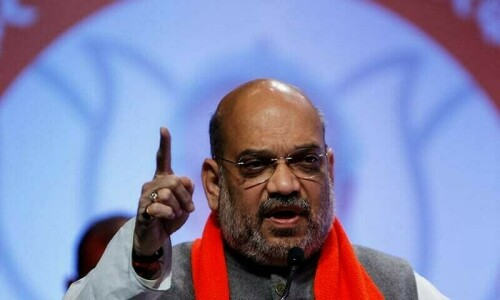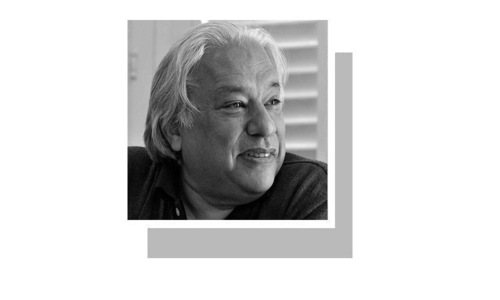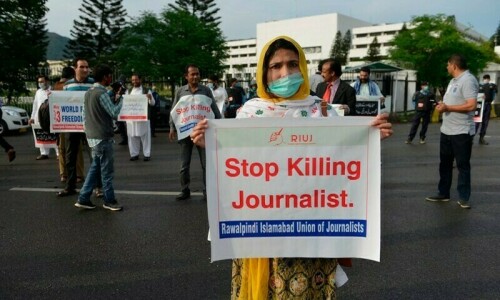
PARIS: Workers and union leaders dusted off bullhorns and flags that had stayed furled during coronavirus lockdowns for slimmed down but still boisterous and at times violent May Day marches on Saturday, demanding more labor protections amid a pandemic that has turned economies and workplaces upside down.
In countries that mark May 1 as International Labor Day, the annual celebration of workers’ rights produced a rare sight during the pandemic: large and closely packed crowds, with marchers striding shoulder-to-shoulder with clenched fists behind banners. In Turkey and the Philippines, police prevented the May Day protests, enforcing virus lockdowns and making hundreds of arrests. In France, some marchers scuffled with riot police.
For labour leaders, the day was a test of their ability to mobilise workers in the face of the profound economic disruptions.
In France, thousands took to the streets with trade union banners and flags, hemmed in by and sometimes scuffling with riot police. The face masks worn by many marchers were a reminder of how much life has changed since the last traditional May Day celebrations in 2019, before the spreading coronavirus wrecked lives and livelihoods and eroded civil liberties, often including the right to demonstrate.
Some demonstrations, constricted by coronavirus restrictions, were markedly less well-attended than those before the pandemic. Russia saw just a fraction of its usual May Day activities amid a coronavirus ban on gatherings. The Russian Communist Party drew only a few hundred people to the laying of wreaths in Moscow. For a second straight year in Italy, May Day passed without the usual large marches and rock concerts.
But in France, Germany and other places where rallies were allowed, workers vented their concerns over jobs and protections. In Bosnia, coal miner Turni Kadric said he and his colleagues are barely surviving.” In Indonesia, Southeast Asias largest economy, thousands voiced anger at a new jobs law that critics fear will reduce severance pay, lessen restrictions for foreign workers and increase outsourcing as the nation seeks to attract more investment. Protesters in the capital of Jakarta laid mock graves on the street to symbolise hopelessness and marches were being held in some 200 cities.
In the Philippine capital of Manila, where a monthlong coronavirus lockdown has been extended by two weeks amid a surge in infections, police prevented hundreds of workers from demonstrating at a public plaza, protest leader Renato Reyes said. But protesters did gather briefly at a busy Manila boulevard, demanding pandemic cash aid, wage subsidies and Covid-19 vaccines amid rising unemployment and hunger.
Workers were largely left to fend for themselves while being locked down, labour leader Josua Mata said.
In Turkey, a few labor leaders were allowed to lay wreaths in Istanbul’s Taksim Square but riot police stopped many others from reaching the plaza. The Istanbul governors office said 212 people were taken into custody for breaching coronavirus restrictions. Turks are barred from leaving home, except to collect essential food and medicine, under a lockdown until May 17 that aims to halt a surge in infections. Protests were also banned around Taksim Square.
Published in Dawn, May 2nd, 2021


